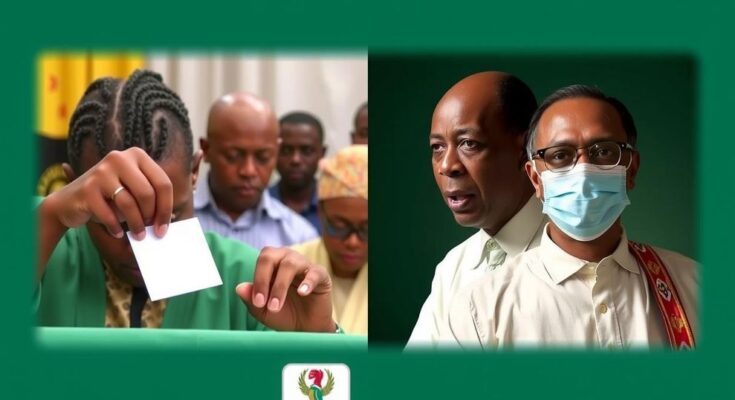Ghana’s recent presidential election showcased a smooth, transparent process leading to the victory of former President John Dramani Mahama, contrasting sharply with Nigeria’s troubled 2023 elections marked by irregularities and technological failures. This disparity underscores the importance of effective electoral management, public trust, and necessary reforms in Nigeria’s electoral processes to achieve credible democracy.
Ghana’s recent presidential election, which resulted in the victory of former President John Dramani Mahama, has highlighted significant contrasts with Nigeria’s electoral processes. Following the announcement of Mahama’s win, his opponent, Vice President Mahamudu Bawumia, acknowledged the people’s choice, indicating a smooth transition and adherence to democratic principles. Local and international observers praised Ghanaian elections for their transparency and effective execution, reinforcing the nation’s position as a model of democracy in Africa.
In stark contrast, Nigeria’s own electoral experience in 2023 was plagued by serious irregularities, technological failures, and allegations of corruption, despite a staggering budget of ₦313.4 billion ($215 million) allocated to the process. The failures of technological systems intended for voting transparency highlighted inefficiencies within the Independent National Electoral Commission (INEC), leading to questions about the appropriate management of substantial electoral funding.
Ghana’s Electoral Commission (EC) successfully demonstrated meticulous planning and excellent resource management, focusing on crucial aspects such as logistics and voter education that ensured a smooth electoral process. Conversely, INEC faced multiple operational challenges, including equipment breakdowns, logistical hiccups, and accusations of vote manipulation, which undermined public confidence in the electoral process.
The difference in public trust toward electoral institutions also plays a critical role. Ghana’s EC has gained reliability through transparency and engagement, fostering a sense of confidence that has helped diminish electoral tensions. In contrast, INEC is burdened by skepticism, compounded by persistent misinformation and claims of bias, resulting in voter apathy and prolonged electoral disputes.
Additionally, the simplicity of Ghana’s electoral process, with a clear and straightforward structure, contrasts sharply with Nigeria’s more complicated voting system, which involves multiple elections and can overwhelm INEC. The success of Ghana’s elections serves as a reminder of the essential nature of resource management, public trust, and efficient planning in achieving credible democratic processes.
For Nigeria to reclaim a sense of electoral integrity, reforms must be prioritized to address the inherent systemic issues that have plagued its elections, fostering a renewed commitment to upholding democratic standards. The disparities between Ghana’s successful electoral achievements and Nigeria’s ongoing challenges emphasize the urgent need for transformative measures in Nigeria’s electoral framework.
As noted by Don Umah, coordinator of Nigeria Voters’ Forum, “It is a shame for our electoral institutions who behave like ruling parties at states and federal levels. INEC needs to go back and ask itself questions and redeem its image.” The comparative analysis of both nations reflects the necessity for Nigeria to learn from Ghana’s successful strategies to improve its electoral landscape.
The article compares the recent presidential election in Ghana, where John Dramani Mahama emerged victorious, to Nigeria’s troubled 2023 elections. It outlines how Ghana’s electoral system exemplifies transparency, effective planning, and public trust, while Nigeria’s electorate faces challenges such as poor management, technological failures, and allegations of corruption. The contrast serves to identify systemic issues present in Nigeria’s elections and emphasizes the need for reforms to enhance democratic integrity.
In conclusion, the juxtaposition of Ghana’s recent successful election with Nigeria’s troubled electoral history underscores the importance of effective electoral management and public trust. Ghana’s experience reveals how transparent processes and sound planning can enhance democratic credibility. For Nigeria, significant reforms are necessary to address deep-rooted deficiencies in its electoral framework to restore public confidence and ensure credible elections moving forward.
Original Source: businessday.ng




